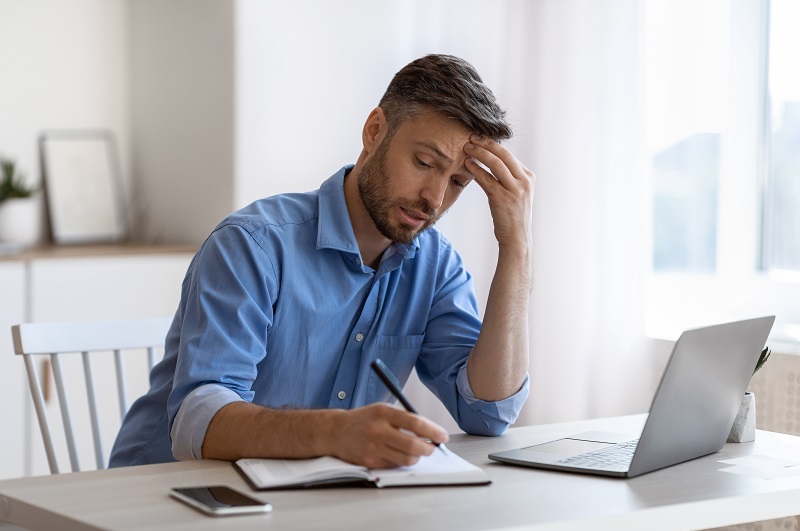
When you have a busy schedule, it might seem tempting to ignore your needs in the name of productivity. While it might seem like the most viable option at the moment in order to get your obligations done and out of the way, it’s actually one of the most detrimental approaches to your mental and physical health there can be. When it comes to your mental health, consider some of the best ways to treat it in spite of a busy schedule which can include giving thought to your diet, exercise, socialization, and rest habits. You can also look into therapy opportunities that fit in your schedule in order to help get your thoughts in order and find someone to talk to about things that might be bothering you.
Diet
Your body is like an ecosystem. When one part is in disarray, the other areas feel it. Your body experiences the impact of the food you choose to eat. When you’re busy, it’s easy to skimp on meals or make unhealthy choices. However, your body needs nutrients to function properly. Eating a balanced diet helps you maintain energy levels, focus, and concentration. It also helps to reduce stress and anxiety. So if you’re looking to improve your mental wellness, start with your diet.
If you’re tired of feeling sluggish and tired in the afternoons, avoid that sugar-filled cup of coffee in the morning. Try an actual breakfast, or healthier on-the-go options such as a green smoothie, avocado toast, or a meal that contains a solid mixture of lean protein and healthy fat. Drink lots of water to help your brain remain alert throughout the workday. Improving your food choices will help you maintain a higher quality of mental wellness. In spite of your busy schedule, you’re going to eat. Just focus on making better choices in food in order to treat your mental health.
Therapy
Even when things are hectic, it’s important to find time to sit down and talk things through with a professional. Having a chance to talk about and analyze things that could be bothering you is one of the best ways to find destructive patterns you may be relying on, understand where your emotions are coming from, and come to terms with both the good and bad about yourself. You’ll also be able to replace bad habits with good ones, coming away with better tools to handle both different situations that stress you out and your reactions to them.
If you find it difficult to carve out time for traditional therapy appointments, it’s important that you sit down to talk with a therapist. This is essential because you’ll recognize patterns that are destructive. You’ll also glean from a good therapist in order to learn new ways to cope, heal and thrive. Being in the company of others can help you feel less alone in your struggles. Regularly attending group therapy sessions, you’ll gain both community and therapy in one setting.
Socialization
Socialization is an important part of anyone’s life. Humans are social creatures, and it helps us to connect with others and to feel supported. When we feel disconnected, we can become unhappy. If you have a long commute each day, use that time to call a friend and catch up. Set up at least one date or get-together with a friend or a loved one each week. When you can put it on the schedule and prioritize it, you’ll become happier as you connect with people you feel safe around. You may even find that some of the rockier relationships you have are able to improve and that you have more in common with others than you realized. So take the time to socialize, and you’ll be glad you did.
Rest
It’s important to get plenty of rest, but sometimes it’s easier said than done. Life gets busy and before you know it, you’re running on fumes. But skimping on sleep can have some serious consequences. When you don’t get enough rest, you’re more likely to suffer from a decreased ability to concentrate, depression, and heart disease. Even if you’re unable to get eight hours each night, try to find opportunities to shift your schedule around and take a non-addictive sleep supplement in order to ensure that the sleep you get is of the highest quality. Your brain will thank you for it.
Exercise
Exercise isn’t just good for your physical health – it’s also great for your mental health. When you exercise, your body releases endorphins. Endorphins are often referred to as the feel-good hormones. So if you’re looking to boost your mood, exercise is a great way to do it. Not only will you feel physically better after a workout, but you’ll also feel happier and more relaxed. And if you’re short on time, you can still get all the benefits of exercise by doing a quick HIIT workout. So next time you’re feeling down, remember that a little bit of exercise can go a long way towards making you feel better.
While these methods might seem basic and well-known, many people don’t often think to implement them when they’re already feeling down. By taking baby steps and giving yourself grace, you’ll be able to find a routine that’s effectively tailored to your needs and works with your schedule. Until you’re able to create more free time in your schedule, consider the following options for the best results in giving yourself a better head space.
